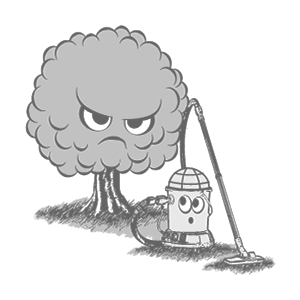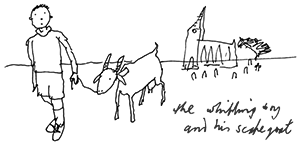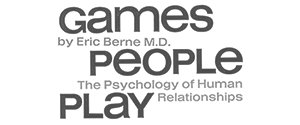A power vacuum is, in its broadest sense, an expression for a condition that exists when someone has lost control of something and no one has replaced them. It is usually used to refer to a political situation that can occur when a government has no identifiable central authority.
The metaphor implies that, like a physical vacuum, other forces will tend to ‘rush in’ to fill the vacuum as soon as it is created, perhaps in the form of an armed militia or insurgents, military coup, warlord or dictator.
read more »
Power Vacuum
Dysfunctional Family
A dysfunctional family is a family in which conflict, misbehavior, and often child neglect or abuse on the part of individual parents occur continually and regularly, leading other members to accommodate such actions.
Children sometimes grow up in such families with the understanding that such an arrangement is normal. Dysfunctional families are primarily a result of co-dependent adults, and may also be affected by addictions, such as substance abuse (alcohol, drugs, etc.), or sometimes an untreated mental illness. Dysfunctional parents may emulate or over-correct from their own dysfunctional parents. In some cases, a ‘child-like’ parent will allow the dominant parent to abuse their children.
read more »
Identified Patient
Identified patient (IP) is a form of dysfunctional parenting where one child, usually selected by the mother, is forced into going to therapy while the family’s overall dysfunction is kept hidden. The term is also used in the context of organizational management, in circumstances where an individual becomes the carrier of a group problem (also known as scapegoating).
The term emerged from the work on family homeostasis in the Bateson Project, a ground-breaking collaboration organized by English social scientist Gregory Bateson in the 1950s and early 1960s. Bateson described it as a way to identify a largely unconscious pattern of behavior whereby an excess of painful feelings in a family lead to one member being identified as the cause of all the difficulties – a scapegoating of the IP.
read more »
Role Suction
Role suction is a term introduced in the USA by pyschologist Fritz Redl in the mid-twentieth century to describe the power of a social group to allocate roles willy-nilly to its members. British psychoanalyst W. R. Bion’s group dynamics further explored the ways whereby the group (unconsciously) allocates particular functions to particular individuals in order to have its covert emotional needs met; and the process has recently been highlighted anew within the ‘Systems Centered Therapy’ of Yvonne Agazarian (a form of group therapy).
Among regularly occurring group roles are those of the ‘scapegoat’ for the group’s troubles; the ‘joker’; the ‘peacemaker’; the ‘critic/spokesperson’ for group standards; the ‘idol,’ or upholder of the group ideal; and the ‘identified patient’ (the person in a dysfunctional group who has been subconsciously selected to act out the group’s inner conflicts as a diversion). In mixed gender groups, women may be disproportionately pressured by role suction into playing a nurturing/peacemaker role.
read more »
Coulrophobia
Coulrophobia [kool-ruh-foh-bee-uh] is a fear of clowns. The term is of recent origin, probably dating from the 1980s, and according to one analyst, ‘has been coined more on the Internet than in printed form because it does not appear in any previously published, psychiatric, unabridged, or abridged dictionary.’ However, the author later notes, ‘regardless of its less-than-verifiable etymology, coulrophobia exists in several lists.’ The prefix ‘coulro-‘ may be a neologism derived from an Ancient Greek word meaning ‘stilt-walker,’ although the concept of a clown as a figure of fun was unknown in classical Greek culture, stiltwalking was practiced.
According to a psychology professor at California State University, Northridge, young children are ‘very reactive to a familiar body type with an unfamiliar face.’ A study conducted by the University of Sheffield found that the children did not like clown décor in the hospital or physicians’ office settings. The survey was about children’s opinions on décor for an upcoming hospital redesign. Dr Penny Curtis, a researcher, stated ‘We found that clowns are universally disliked by children. Some found the clown images to be quite frightening and unknowable.’
Pocket Universe
A pocket universe is a concept in inflationary theory, proposed by theoretical physicist Alan Guth. It defines a realm like the one that contains the observable universe as only one of many inflationary zones. Astrophysicist Jean-Luc Lehners, of the Princeton Center for Theoretical Science, has argued that an inflationary universe produces pockets.
As he wrote in 2012, ‘Eternal inflation produces pocket universes with all physically allowed vacua and histories. Some of these pocket universes might contain a phase of slow-roll inflation, some might undergo cycles of cosmological evolution, and some might look like the Galilean genesis or other ’emergent’ universe scenarios. Which one of these types of universe we are most likely to inhabit depends on the measure we choose in order to regulate the infinities inherent in eternal inflation.’
read more »
Identicon
An Identicon is a visual representation of a hash value, usually of an IP address, that serves to identify a user of a computer system as a form of avatar while protecting the users’ privacy.
The original Identicon was a 9-block graphic, and the representation has been extended to other graphic forms by third parties.
read more »









